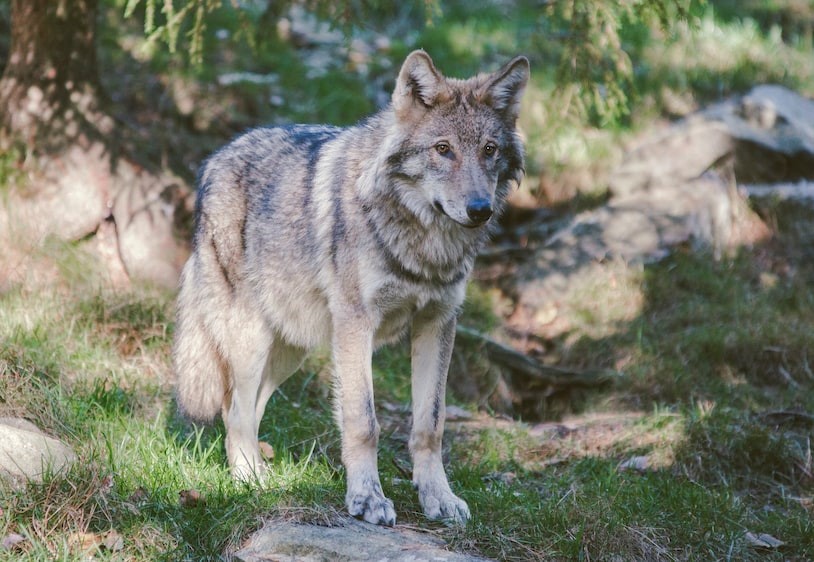The European Commission announced on Monday a data collection on wolves in the EU to address the challenges for local communities related to what it claims to be a return of the wolves.
Local communities, scientists and all interested parties are invited to submit up-to-date data by 22 September 2023 on wolf population and their impacts, using the following email address EC-WOLF-DATA-COLLECTION@ec.europa.eu.
According to the Commission, the return of the wolf to EU regions where it has been absent for a long time is increasingly leading to conflicts with local farming and hunting communities, especially where measures to prevent attacks on livestock are not widely implemented.
The initiative has the support of Commission President Ursula von der Leyen. “The concentration of wolf packs in some European regions has become a real danger for livestock and potentially also for humans. I urge local and national authorities to take action where necessary. Indeed, current EU legislation already enables them to do so.”
On the basis of the data collected, the Commission says it will decide on a proposal to modify, where appropriate, the status of protection of the wolf within the EU and to update the legal framework, to introduce, where necessary, further flexibility, in the light of the evolution of this species.
Wolves, bears, lynx and other large carnivores are endangered species and protected according to the Habitats Directive but derogations from the rules are allowed under specific conditions. Decisions on derogations are taken by the national authorities but should be reported to the European Commission.
Member states do not need to consult the Commission before applying derogations but they have an obligation to submit a report every two years to the Commission on the implementation of Article 16 in the Directive. This is clearly insufficient to have a clear scrutiny, Eurogroup for Animals told The Brussels Times.
The Commission also referred to a joint letter from November 2021 from the Commissioners in charge of agriculture and environment, sent to their counter-parts in the EU member states. In the letter, with guidance on the application of the Directive, the Commissioners wrote that the recovery of the wolf in Europe is a recognized conservation success that has been made possible by legal protection.
They also recalled, among EU’s specific nature restoration commitments, that the EU biodiversity strategy requires that member states will ensure no deterioration in conservation trends and status of all protected habitats and species by 2030.
Asked about the review of the conservation status of wolves in the EU, the Commission spokesperson replied that it aims at updating the data and declined to comment on what recommendations the review might lead to. “At this stage, I cannot prejudge what we are hoping to get from the review, besides a full, accurate picture of the situation that will allow us to take the action that is necessary.”
Infringement case against Sweden
The application of the Habitats Directive, in particular by Sweden, has raised concerns. Earlier this year, a letter co-signed by 29 NGOs was sent to the European Commission, requesting to re-open the infringement proceedings against Sweden regarding its wolf management policies and investigate the legality of its lynx management policy.
In its reply, the Commission recognized that the Swedish wolf population was currently categorized as endangered, and therefore, did not reach favourable conservation status. They also stated that in order to use hunting as a tool for population management, Sweden needed to ensure that such derogations fully complied with the Habitats Directive.
As far as is known, there is only one infringement investigation open about wolf hunting, the one against Sweden. The procedure was launched already in 2010 and was recently assessed by the European Ombudsman. The inquiry showed that the Commission was still actively investigating but did not explain why it has taken so many years.
According to the Ombudsman it was a reasonable assumption that the next stage in the Commission’s investigation could take place by the end of 2023. The Ombudsman therefore concluded that no further inquiries were justified and closed the case.
Asked about the case and why it takes so long time to finalize it, the Commission spokesperson replied that he could not comment on an on-going case.
There is no typical infringement procedure, he added. Sometimes the procedures take plenty of time depending on the dialogue with the concerned member state. “The Commission is used to deal with stakeholders with conflicting interests and takes full political responsibility for its decisions.”
”It’s remarkable that an infringement case from 2010 hasn’t been brought to court yet,” commented Marie Stegard Lind, a lawyer and member of the board of The Swedish Carnivore Association. She explained that the procedure might have been halted because of a preliminary ruling requested by Finland in the European Court of Justice (ECJ) concerning hunting for population management.
The ECJ ruling in 2019 (C-674/17 Tapiola), which also is binding on Sweden, sets very strict limits for derogations on hunting of protected animals and resulted in a ban on hunting of wolves in most of Finland.
She believes that the Commission trusted Sweden to comply with EU legislation and therefore has been reluctant to bring the case to the ECJ. Swedish courts, however, continued to allow derogations from the strict protection of endangered species and the number of hunting licenses for killing wolves, but also bears and lynx, has increased.
M. Apelblat
The Brussels Times

